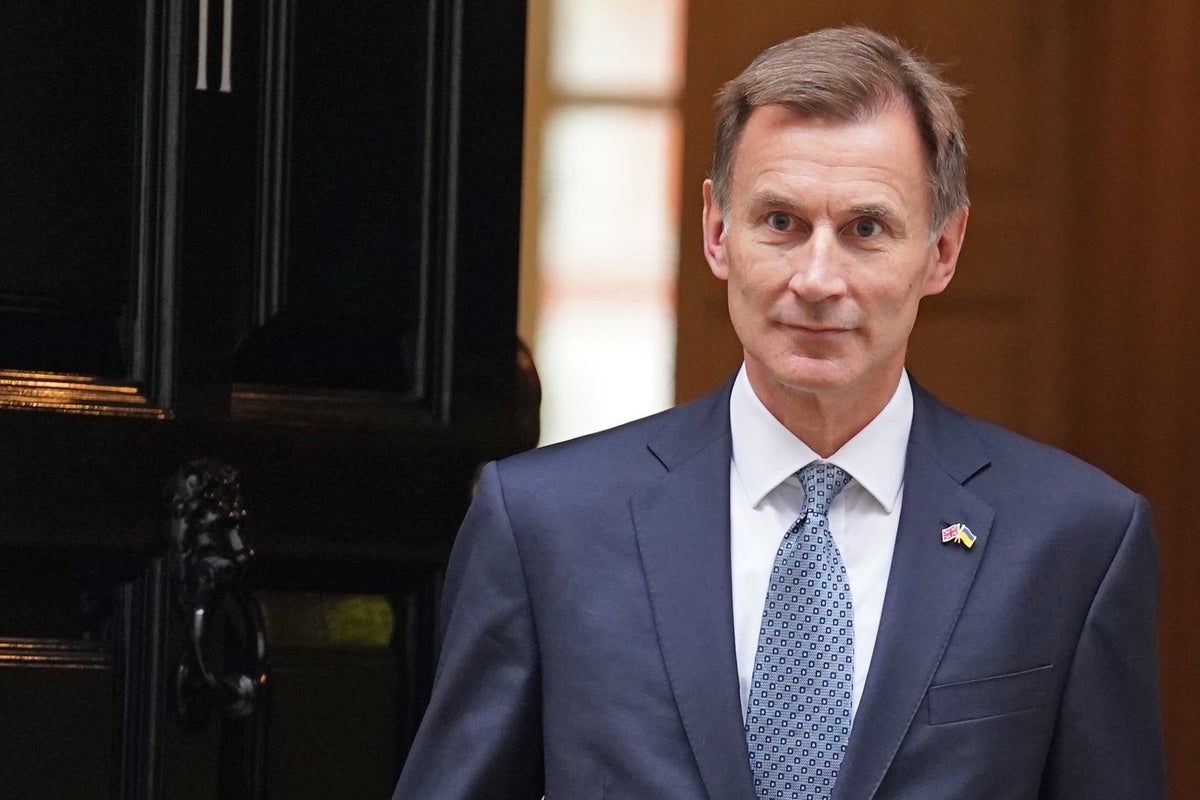
Jeremy Hunt has launched a series of major reform of the UK’s banking industry, announcing plans to rip up red tape and ditch reams of EU regulations.
The chancellor said the Rishi Sunak government has a “golden opportunity” to use Brexit to reshape the financial sector, claiming Brussels’ rules were “choking” Britain’s economic growth.
Mr Hunt is setting out a package of more than 30 major regulatory reforms in Edinburgh on Friday, vowing to “review, repeal and replace” hundreds of pages of EU regulations.
Promising to “seize on or Brexit freedoms”, he vowed to change “burdensome EU laws that choke off growth in other industries such as digital technology and life sciences”.
The chancellor has promised to reform areas ranging from disclosure for financial products to prudential rules. Any regulations deemed to hold back growth or that put companies off listing in the UK will be overhauled.
The government is also set to announce radical changes to ring-fencing rules, which currently require large banks to separate retail and investment arms.
The so-called “Edinburgh reforms” come as the government attempts to end the nation’s sluggish record on growth, after Liz Truss and former chancellor Kwasi Kwarteng promised a similar plan dubbed “Big Bang 2.0”.
The previous push was a reference to Margaret Thatcher’s 1986 “Big Bang” policies which kicked off a massive deregulation in the City of London.
“This country’s financial services sector is the powerhouse of the British economy,” Mr Hunt said. “Leaving the EU gives us a golden opportunity to reshape our regulatory regime and unleash the full potential of our formidable financial services sector.”
Mr Hunt, who will meet with finance chiefs in Edinburgh, said the government wanted an “agile, proportionate and home-grown regulatory regime” to help unlock more investment and jobs.
The chancellor also promised to reform the UK prospectus regime to support stock market listings and capital raises, reforming rules on real estate investment trusts and reviewing provisions on investment research.
The chancellor also revealed the shake-up will include a commitment to make “substantial legislative progress” on repealing and replacing the Solvency II directive next year, in the hope of unlocking more than £100bn of private investment.
Mr Hunt is also issuing new mandates to the Financial Conduct Authority and the Prudential Regulation Authority as part of the plans to “turbocharge” growth.
But there are concerns that the deregulation drive could leave Britain’s financial sector vulnerable to crashes like the global crisis seen in 2008.
Labour’s shadow city minister Tulip Siddiq warned against a “race to the bottom” in the rush to rip up regulations – arguing that the ring fencing rules which separate high street banking from investment “were introduced for good reason.”
Ms Siddiq said: “Introducing more risk and potentially more financial instability because you can’t control your backbenchers is this Tory government all over. That this comes after the Tories crashed our economy is beyond misguided.”
Victoria Scholar of Interactive Investor said “there is a risk that the Treasury is acting myopically, quickly forgetting the pre-2008 excessive risk taking that ultimately led to the global financial crisis”.
Claire Cross, partner at Corker Binning law firm specialising in finance, said the relaxing of regulations “will not, history suggests, end well”, adding: “We have already been through one cycle of light touch financial regulation which ultimately resulted in the 2008 financial crash.”
Finance minister Andrew Griffith denied that the government was pushing too far in easing rules, telling the Financial Times it was “absolutely the right time” to review the regulatory regime which came in the aftermath of the 2008 crisis.
“The banking system, I’m assured, is in a much better position in terms of its balance sheet and its understanding of the liabilities that it is managing,” Mr Griffith said.
Mr Hunt last month rejected the Brexit forecasts of his own economic watchdog – saying he does not accept that leaving the EU “will make us poorer”.
Asked about Office for Budgetary Responsibility analysis predicting a 4 per cent slump in growth in the long-term – wiping £100bn from output – the chancellor replied: “I don’t accept the 4 per cent.”







